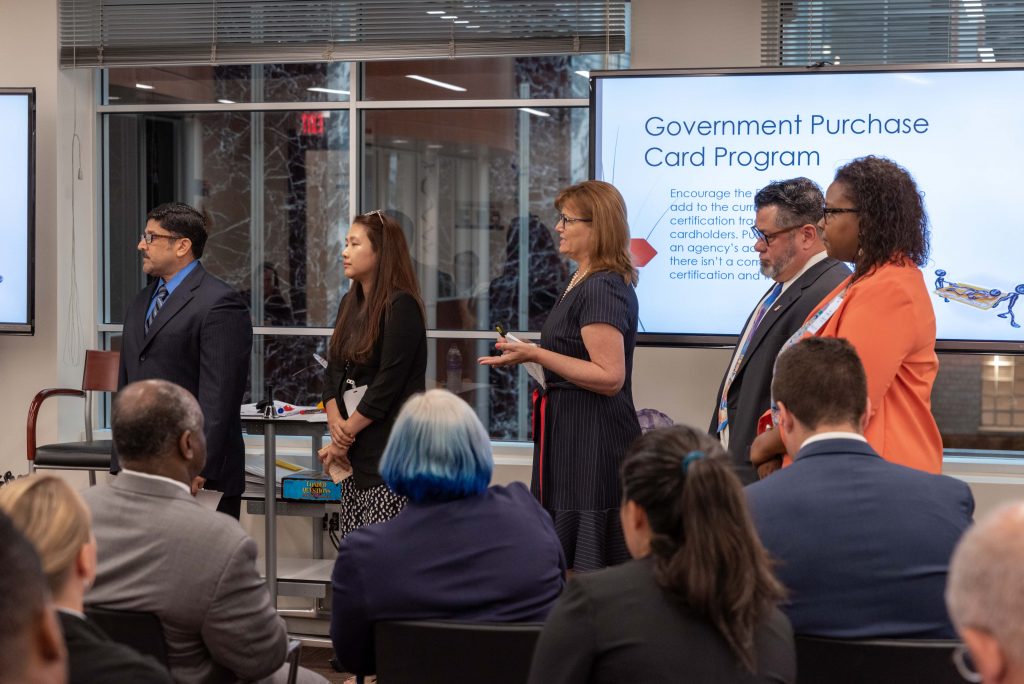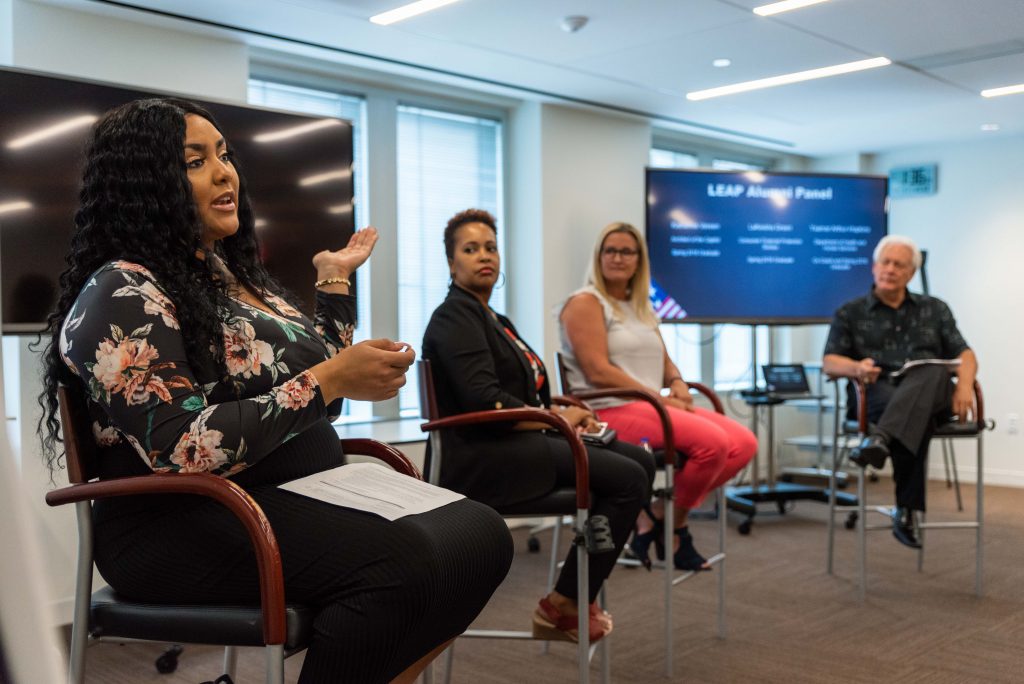Acquisition professionals get motivated to manage
Last month, the 56 participants in the spring 2019 Leadership Excellence for Acquisition Professionals program met at the Partnership for a session called “Motivating and Managing Others.”
A “Shark Tank” for federal employees’ ideas? That was the scene at the Partnership recently.
Participants in the Partnership’s Leadership Excellence for Acquisition Professionals program took on group projects that tackled real-world government challenges and presented their ideas to executive-level professionals.
One team wants to help small businesses that contract with government have a plan of action in case of a government shutdown. Their idea is to create a decision tree to answer questions such as who businesses should contact during a shutdown, whether they should continue working or if will receive payment.
Another group shared its idea to streamline the training and certification process for government purchase card certificates. The team plans to create a system to track which trainings an employee needs to take and whether he or she has completed them.

In the style of the reality competition television show “Shark Tank,” groups pitched their projects to a panel of current and former senior executives—the Sharks. The panel evaluated participants on their projects’ impact and scope as well as how effectively they presented the information.
Later, a panel of former LEAP participants offered advice on participant’s projects, discussing the importance of anticipating negative feedback—from the Sharks or anyone else. The LEAP alumni encouraged participants to expect the worst when pitching their projects, not only within their cohort, but also at their agencies.

They also recommended participants address difficulties within their project teams early, communicating with one another often.
During each session, a group of participants is responsible for organizing a social activity—time for participants to connect, network and debrief the teachings outside of regular session hours.
For this session’s social activity, participants went to Lucky Strike, a local venue where participants could enjoy food, bowling and other arcade games.
After three days together, participants headed back to their federal jobs to test out what they learned. They will reconvene in October for a session called “Adapting to Change.”
